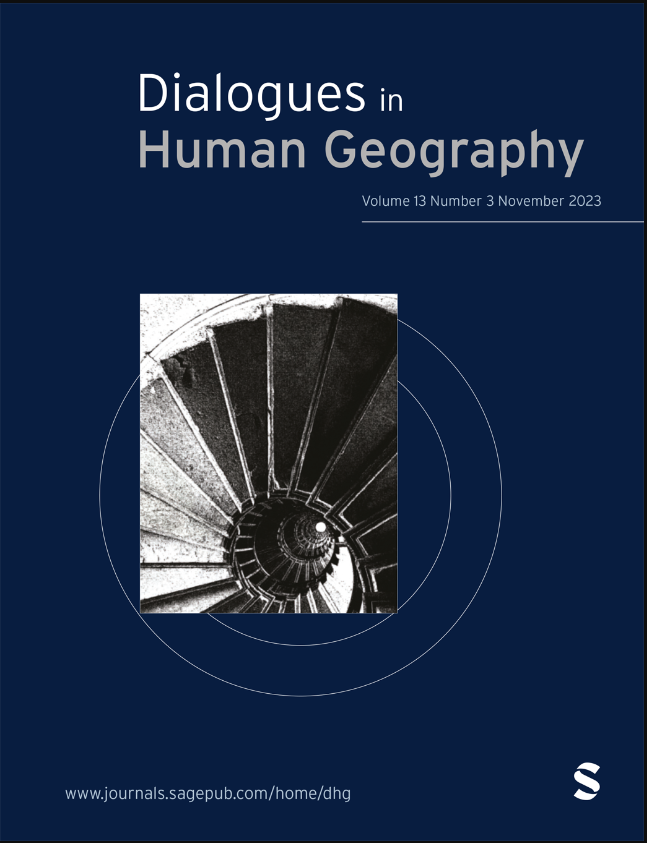Reorienting GIScience for a data-intensive society
IF 8.2
1区 社会学
Q1 GEOGRAPHY
引用次数: 0
Abstract
In this commentary, I explore the potential future for GIScience to broaden its focus from technological advancements to examining the dynamic interactions between geographic information system (GIS) technology, its users, and the places where it is being utilized. Drawing on the postphenomenological perspectives of Don Ihde and his followers, this commentary reimagines GIScience by emphasizing its ability to shape and be shaped by human experiences and various creative forces across bodies and places. This reorientation decenters GIScience beyond the human body by also encompassing non-human entities such as animals, bots, and algorithms. In the face of a rapidly growing data-intensive society, this commentary underlines the importance of adopting a caring stance when it comes to the use and development of GIS. This perspective of care can enhance our understanding and empathy toward ourselves, the planet, and all other beings. This reorientation of GIScience plays a significant role in shaping future trajectories of GIScience and the discipline of geography, enabling us to effectively tackle the theoretical and practical challenges posed by a rapidly evolving data-intensive society.为数据密集型社会重新定位信息科学
在这篇评论中,我探讨了地理信息系统科学的潜在未来,将其关注点从技术进步扩大到研究地理信息系统技术、用户和使用地之间的动态互动。这篇评论借鉴了Don Ihde及其追随者的后现象学视角,通过强调其塑造和被人类经验以及身体和地方的各种创造力塑造的能力,重新构想了地理信息科学。这种重新定位通过将动物、机器人和算法等非人类实体也包括在内,将GIScience转移到了人体之外。面对快速增长的数据密集型社会,本评论强调了在使用和开发GIS时采取关爱立场的重要性。这种关怀的视角可以增强我们对自己、地球和所有其他生物的理解和同理心。GIScience的这种重新定位在塑造GIScience和地理学学科的未来轨迹方面发挥着重要作用,使我们能够有效应对快速发展的数据密集型社会带来的理论和实践挑战。
本文章由计算机程序翻译,如有差异,请以英文原文为准。
求助全文
约1分钟内获得全文
求助全文
来源期刊

Dialogues in Human Geography
GEOGRAPHY-
CiteScore
8.00
自引率
4.00%
发文量
86
期刊介绍:
Dialogues in Human Geography aims to foster open and critical debate on the philosophical, methodological, and pedagogical underpinnings of geographic thought and practice. The journal publishes articles, accompanied by responses, that critique current thinking and practice while charting future directions for geographic thought, empirical research, and pedagogy. Dialogues is theoretically oriented, forward-looking, and seeks to publish original and innovative work that expands the boundaries of geographical theory, practice, and pedagogy through a unique format of open peer commentary. This format encourages engaged dialogue. The journal's scope encompasses the broader agenda of human geography within the context of social sciences, humanities, and environmental sciences, as well as specific ideas, debates, and practices within disciplinary subfields. It is relevant and useful to those interested in all aspects of the discipline.
 求助内容:
求助内容: 应助结果提醒方式:
应助结果提醒方式:


